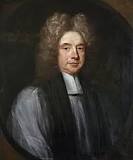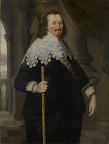 Relevant History welcomes Carola Dunn, who was born and raised in England. After university, she set off round the world. She made it to Fiji before returning to the U.S. to get married. She started writing in 1979, and her first book, a Regency, came out in 1981. Although she has lived in America for fifty years, presently in Oregon, almost all her sixty-plus books—36 Regencies and 27 historical (1920s and 1970ish) mysteries—are set in England. She has one son, two grandchildren, and a dog. To learn more about her and her books, visit her web site, and follow her on Facebook.
Relevant History welcomes Carola Dunn, who was born and raised in England. After university, she set off round the world. She made it to Fiji before returning to the U.S. to get married. She started writing in 1979, and her first book, a Regency, came out in 1981. Although she has lived in America for fifty years, presently in Oregon, almost all her sixty-plus books—36 Regencies and 27 historical (1920s and 1970ish) mysteries—are set in England. She has one son, two grandchildren, and a dog. To learn more about her and her books, visit her web site, and follow her on Facebook.
*****
If you grew up in England a few decades ago and went to a county primary school, chances are that you sang “The Song of the Western Men,” sometimes known as the Cornish national anthem:
A good sword and a trusty hand!
A merry heart and true!
King James’s men shall understand
What Cornish lads can do!
When I learnt it in the 1950s, it was regarded as a folk song. In fact it has a pedigree, having been written in 1824 by the eccentric parson, poet, and prankster R. S. Hawker, Vicar of Morwenstow, at the age of twenty. Originally published anonymously, the song was praised by the like of Scott and Macauley.
Though he based it on a 17th century Cornish folk ballad, Hawker lifted only the first three lines of the second stanza of the original.
And have they fixed the where and when?
And shall Trelawny die?
Here’s twenty thousand Cornish men
Will know the reason why!
 The song is sometimes known as “Trelawny”, referring to Sir Jonathan Trelawny, Bishop of Bristol, Exeter, and Winchester. In 1687, he was one of seven bishops who petitioned against James II’s Declaration of Indulgence towards Catholics. The king, afraid of demonstrations against his policy, imprisoned them in the Tower, which naturally led to demonstrations in their favour, especially in Cornwall, ancestral home of the Trelawny family.
The song is sometimes known as “Trelawny”, referring to Sir Jonathan Trelawny, Bishop of Bristol, Exeter, and Winchester. In 1687, he was one of seven bishops who petitioned against James II’s Declaration of Indulgence towards Catholics. The king, afraid of demonstrations against his policy, imprisoned them in the Tower, which naturally led to demonstrations in their favour, especially in Cornwall, ancestral home of the Trelawny family.
Out spake their Captain brave and bold:
A merry wight was he:
‘If London Tower were Michael’s hold,
We’d set Trelawny free!
Alas, the anonymous Captain had no force to lead. Cornish regiments had fought valiantly in the Civil War, in the Royalist cause. They had taken several towns in Devon and Somerset and had lost many of their leaders as well as troops. The regiments had not been rebuilt during the Commonwealth. Raising another force to march on London, take the Tower, and free Trelawny was out of the question. So much for…
‘We’ll cross the Tamar, land to land:
The Severn is no stay:
With “one and all,” and hand in hand;
And who shall bid us nay?
 One of those Royalist leaders was Bishop Trelawny’s grandfather, Sir John, the first baronet. In promoting the cause of Charles I, he fell foul of Parliament and was imprisoned in the Tower. The king waited till the end of the parliamentary session and promptly had him released.
One of those Royalist leaders was Bishop Trelawny’s grandfather, Sir John, the first baronet. In promoting the cause of Charles I, he fell foul of Parliament and was imprisoned in the Tower. The king waited till the end of the parliamentary session and promptly had him released.
‘And when we come to London Wall,
A pleasant sight to view,
Come forth! come forth! ye cowards all:
Here’s men as good as you.
The old ballad appropriated by Hawker almost certainly referred to Sir John, not his grandson. He was imprisoned for only three weeks and had no need of rescue. The twenty thousand Cornishmen may be a misapplied reference to those troops he later raised to fight with the Royalists in the Civil War.
‘Trelawny he’s in keep and hold;
Trelawny he may die:
But here’s twenty thousand Cornish bold
Will know the reason why!’
Ah well, it’s a pleasing myth and a rousing song. And until I started to research it, I believed every word.
*****
A big thanks to Carola Dunn. To someone who contributes a comment on my blog this week, Carola will give away an autographed paperback copy of one of her “Daisy Dalrymple” or “Cornish” mysteries that’s currently unavailable in print in the U.S.—winner’s choice of title. I’ll choose the winner from among those who comment by Friday at 6 p.m. ET. Delivery is available in the U.S. only.
**********
Did you like what you read? Learn about downloads, discounts, and special offers from Relevant History authors and Suzanne Adair. Subscribe to Suzanne’s free newsletter.

I have read many of Carola’s Regencies, and now would very eager to read one of Cornish mysteries.
Fascinating post, and thank you for sharing/explaining. I enjoy a good mystery, and you always come through.
Interesting. Thanks for sharing.
Sometimes stories are remembered better than facts.
Legends are nearly always based loosely on some truth. It’s interesting to hear about this; I admit to being a history buff. I also admit to never reading anything by Carola Dunn (I’m so sorry!), but I love mysteries. Thanks for posting this!
I came across that song some years ago in Rosamunde Pilcher’s Coming Home. How nice to learn the background.
Daisy is a favorite!
Ms. Dunn’s books are favorites in my family. My 100-year-old mom likes the Regencies, my sisters favor the Dalrymples, and I love the Cornish mysteries.
What an interesting family division–I hope you don’t squabble about them! 😀 Always a delight to hear of elderly readers but 100 may be a record.c
PS If you win the free book, I’d be happy to send your mother a Regency instead of a mystery!
I actually had heard the song, however, had no clue about the history, Interesting. It is like reading about the history if the Star Spangled Banner which I didn’t learn in school.
Love Carola’s books. She is a delightful person.
This was an interesting bit of history. Thank you for sharing. I love the Daisy Dalrymple mysteries & would love to read the latest one.
I would love the latest of Daisy’s mysteries.